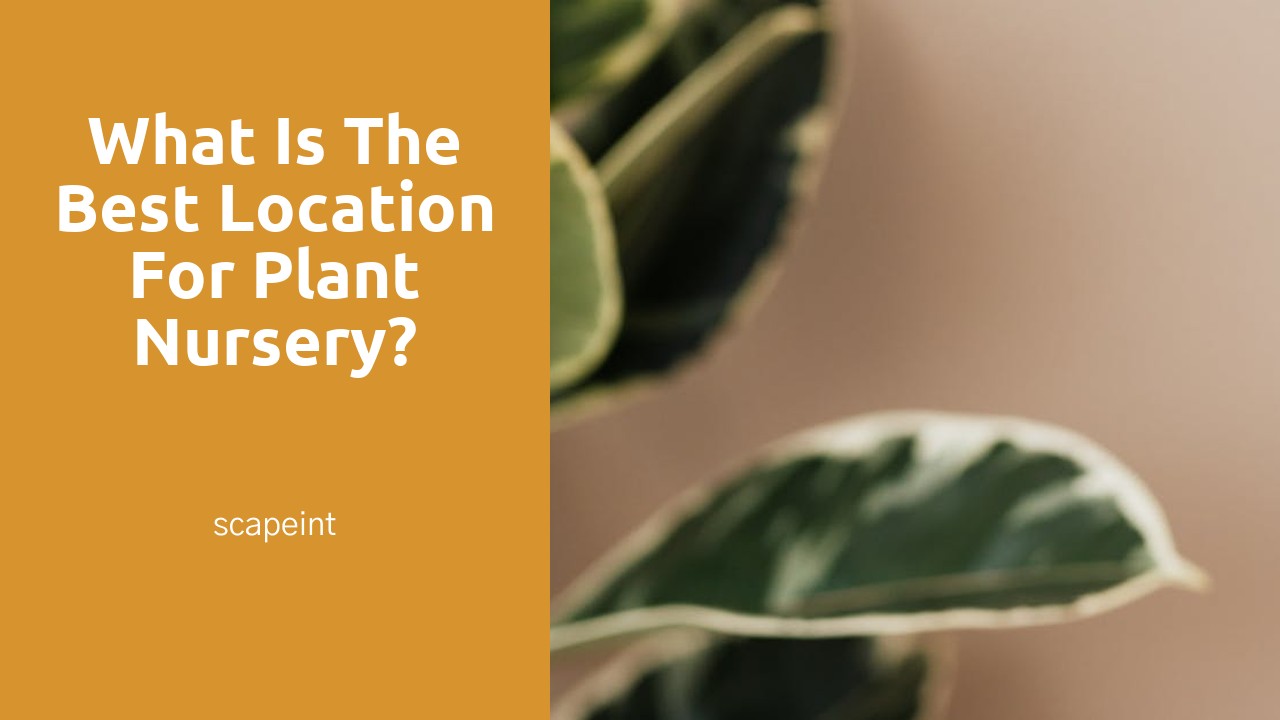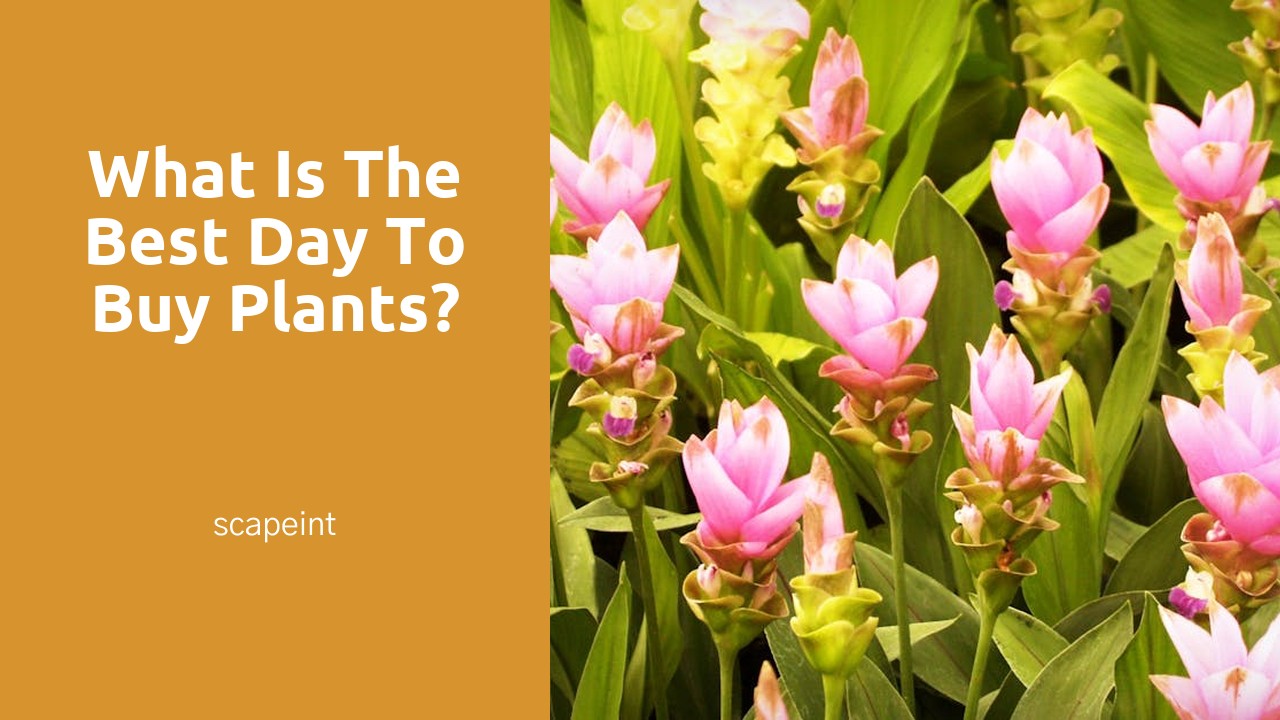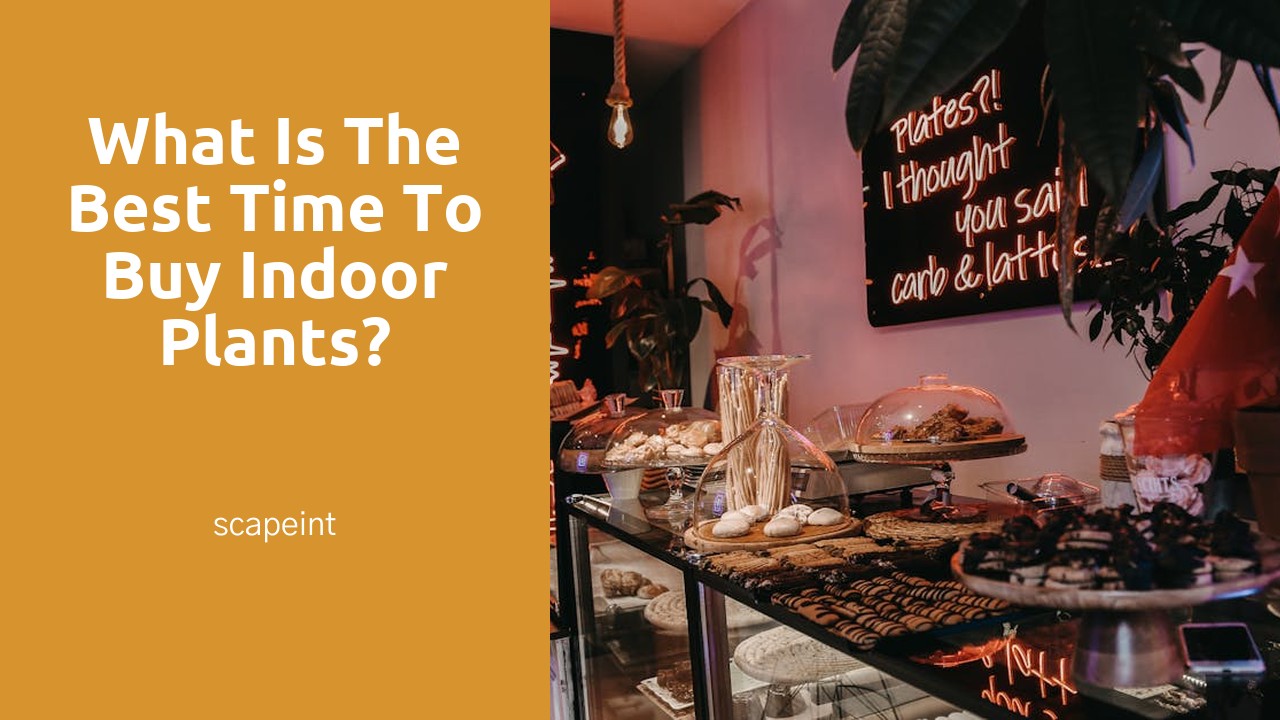
Table Of Contents
Proximity to Target Market
When considering the ideal location for a plant nursery, proximity to the target market plays a pivotal role in determining the success of the business. Being close to where potential customers reside or frequent not only minimizes transportation costs but also helps in fostering customer relationships. For instance, Plant Selection in Halton Hills would benefit greatly from being situated near residential areas and community centres, enabling easy access for customers seeking high-quality plants and gardening supplies.
In addition to enhancing customer convenience, being in close proximity to the target market allows for more personalized customer service. By understanding the needs and preferences of the local community, a plant nursery can tailor its plant selection and customer interactions to better meet the demands of the market. This approach fosters trust and loyalty among customers, positioning the nursery as a go-to destination for all their gardening needs.
Transportation Infrastructure and Accessibility
Transportation infrastructure and accessibility are critical factors to consider when choosing the best location for a plant nursery. The ease of transporting goods to and from the nursery is essential to ensure timely delivery and access to suppliers. In addition, convenient access for customers to visit the nursery plays a vital role in attracting business and increasing sales. Plant selection in Halton Hills is a prime example where transportation infrastructure and accessibility need to be carefully evaluated to optimize the success of a plant nursery.
Moreover, the proximity to major transportation routes such as highways, railways, and airports can significantly impact the operational efficiency of a plant nursery. Being situated close to transportation hubs facilitates the smooth movement of plants and other necessary supplies, thereby reducing transportation costs and enhancing the overall logistics of the nursery operations. Ensuring accessibility for employees and customers alike is key to foster growth and sustainability for a plant nursery in Halton Hills.
Zoning Regulations and Permits
When considering the optimal location for a plant nursery, zoning regulations and permits play a crucial role in determining where the nursery can be established. Specifically, in Halton Hills, these regulations dictate the types of activities permitted in different zones, ensuring that the nursery complies with local bylaws and regulations. It is essential for nursery owners to thoroughly understand and adhere to these regulations to avoid any potential legal issues or penalties that may arise due to non-compliance. Plant Selection in Halton Hills must align with the zoning regulations to ensure smooth operations and legal compliance.
Furthermore, obtaining the necessary permits for operating a plant nursery in Halton Hills is a critical step in the establishment process. These permits may vary depending on the size of the nursery, the types of plants being cultivated, and the impact on the surrounding environment. Nursery owners must navigate the permit application process diligently and ensure that all required permits are obtained before commencing operations. This adherence to permit regulations not only demonstrates a commitment to legal compliance but also helps to maintain a positive relationship with local authorities and the community.
Legal Compliance for Nursery Operations
Legal compliance is a critical aspect that plant nurseries must adhere to in order to operate successfully and sustainably. In Halton Hills, Ontario, nursery operators are required to comply with various regulations to ensure the health and safety of their plants and the environment. This includes following guidelines for pest control, irrigation practices, and using appropriate fertilizers to minimize environmental impact. Plant selection in Halton Hills must also align with local regulations to prevent the introduction of invasive species that could harm the natural ecosystem.
Operators of plant nurseries in Halton Hills must also maintain records and documentation related to their operations to demonstrate compliance with industry standards and government regulations. This includes keeping track of plant origins, monitoring pesticide usage, and documenting waste disposal practices. By prioritizing legal compliance, nursery operators can not only avoid costly fines and penalties but also contribute to the protection and preservation of the local environment in Halton Hills.
Cost Analysis of Potential Locations
When considering the cost analysis of potential locations for setting up a plant nursery, one must carefully evaluate various factors to make an informed decision. Plant nursery operation costs vary depending on the specific location chosen, impacting the business's overall profitability. For instance, establishing a plant nursery near urban centers may imply higher land and infrastructure expenses due to the level of development and competition for land use. Conversely, selecting a location in rural areas may offer cost advantages but could potentially limit the nursery's exposure to its target market.
Plant selection in Halton Hills, for instance, should be assessed against the region's cost of land, utilities, and transportation. Understanding how these factors interplay is crucial in designing a budget that reflects the business's financial capabilities and growth ambitions. Conducting a thorough cost analysis that includes potential expenses related to land acquisition, construction of greenhouses, water supply, and utilities infrastructure will enable nursery operators to make sound financial decisions for sustainable growth and long-term success.
Budgeting for Land and Infrastructure Expenses
When considering the budgeting aspects for land and infrastructure expenses for establishing a plant nursery, it is essential to evaluate the financial implications of different locations. In Halton Hills, for instance, the costs associated with acquiring land and setting up the necessary infrastructure can vary significantly depending on the specific location within the region. Investing time in thorough research and feasibility studies can provide valuable insights into the overall expenses involved in establishing a successful plant nursery in the area.
Plant selection in Halton Hills is a critical factor to consider when budgeting for land and infrastructure expenses. Depending on the types of plants you intend to cultivate, the required land area and infrastructure needs can vary greatly. By conducting a detailed analysis of the market demand for specific plant species in Halton Hills, you can adopt a cost-effective approach towards budgeting for land and infrastructure expenses that align with the anticipated revenue generation from plant sales.
FAQS
How important is the proximity to the target market when choosing a location for a plant nursery?
Proximity to the target market is crucial for a plant nursery as it can reduce transportation costs and ensure fresh products reach customers quickly.
What role does transportation infrastructure play in selecting the best location for a plant nursery?
A well-developed transportation infrastructure is essential for easy access to suppliers and customers, making the distribution of plants more efficient.
Why is it important to consider zoning regulations and permits when establishing a plant nursery?
Understanding zoning regulations and obtaining the necessary permits is vital to ensure that the chosen location is suitable for operating a plant nursery legally.
What legal compliance factors must be considered when setting up a plant nursery?
Compliance with regulations related to environmental protection, water usage, and pesticide application is critical to maintaining a sustainable and legal plant nursery operation.
How can a cost analysis help in determining the best location for a plant nursery?
Conducting a cost analysis can help evaluate expenses such as land purchase, infrastructure development, and operational costs, enabling informed decision-making for selecting the optimal plant nursery location.






